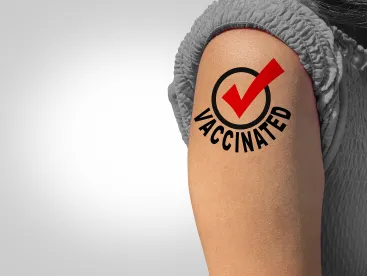On January 7, 2022—the same day the Supreme Court of the United States heard oral arguments concerning the OSHA workplace vaccine mandate—the Louisiana Supreme Court (“LA Supreme Court” or the “Court”) upheld a private employer’s COVID-19 vaccine mandate, relying on the well-established Louisiana employment-at-will doctrine. The LA Supreme Court found that a private employer is entitled to set whatever conditions and terms of employment it wants, including a COVID-19 vaccine mandate, so long as those conditions and terms do not run afoul of federal and state laws.
Brief Background
In Hayes v. University Health Shreveport, 21-01601 (La. Jan 7, 2022), several employees of the University Health Shreveport, LLC d/b/a Ochsner LSU Health Shreveport and LSU Health-St. Mary Medical Center, LLC (“Ochsner”) challenged a mandatory COVID-19 vaccine policy that required all employees to be fully vaccinated by October 29, 2021, absent any religious or medical accommodation exemptions. If employees failed to comply with the COVID-19 vaccine policy, employees were subject to disciplinary action, including but not limited to termination. The employees sought injunctive and declaratory relief to prohibit Ochsner from enforcing such policy and asserted that (1) La. R.S. 40:1159.7 of the Louisiana Medical Consent Law establishes their right to refuse medical treatment, and (2) La. Const. art. I, § 5 invokes their right to privacy.
Dismissing the employees’ claims, the underlying trial court analogized an employer’s right to require a vaccine mandate to uniform requirements and found that even if an employee argues a right to freedom of speech to violate the employer’s uniform policy, employers may still enforce its policy under the Louisiana employment-at-will doctrine. The appellate court found the lower court’s denial of the temporary restraining order and sustaining Ochsner’s exception of no cause of action was in error. In support of its opinion, the appellate court found that employees had stated a cause of action for a preliminary injunction and declaratory relief concerning the disciplinary action taken against them for not complying with the mandate because, “notwithstanding the employment-at-will doctrine, [disciplinary action] would unlawfully abridge certain alleged constitutional rights.”
Ochsner filed a writ application to the LA Supreme Court, which was granted, seeking guidance on whether employees of a private healthcare provider could state a cause of action for a constitutional violation caused by the vaccine mandate.
The Louisiana Supreme Court’s Decision
Relying on the well-established employment-at-will doctrine, the LA Supreme Court dismissed the employees’ claims and noted that their arguments were “unavailing.” The Court emphasized that the employment-at-will doctrine (LSA-C.C. art. 2747) permits employers to dismiss at-will employees at any time for any reason, unless it violates existing federal or state law. In rejecting the employee’s statutory and constitutional arguments, the Court held that:
(i) the employees’ assertion that persons may refuse to consent to medical treatment under La. R.S. 40:1159.7 of the Louisiana Medical Consent Law fails as that provision only applies to the healthcare provider-patient relationship, not an employer-employee relationship, and
(ii) the employees’ right to privacy assertion under La. Const. Art. I, § 5 fails because the right to reject medical treatment (previously recognized by the Court to be contained in the right to privacy) only applies to State actors, not private entities like Ochsner.
The Court further posited a significant view of the employment-at-will doctrine by highlighting that “[a] corollary of the employment-at-will doctrine is that courts are not quasi-human resources departments that re-evaluate personnel decisions or the wisdom of those determinations, so long as there is no violation of ‘federal and state laws which proscribe certain reasons for dismissal of an at-will employee.’”
Key Takeaways
As the Court in Hayes firmly stated, a private employer’s decision to discipline its employees for policy violations should not be questioned absent any violation of federal and state law. The Court’s decision underscores the reciprocal relationship between employees and private employers in an at-will relationship that gives broad liberty to both parties. As private employers’ vaccine mandates are challenged throughout the country, this decision may serve as persuasive dicta to shield private employers who seek to enforce mandatory vaccine policies in at-will employment states.




 />i
/>i
